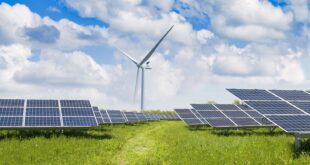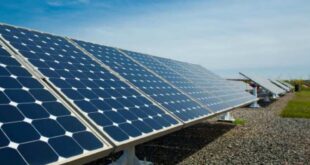Energy ministers from the 28 EU member states are expected to steer clear of potentially divisive talks on the bloc’s renewable energy target for 2030 in order to agree a “general approach“ when they meet in Brussels next Monday (18 December).
Estonia. the current holder of the EU’s six-month rotating presidency. said it did not expect an in-depth discussion on the proposed targets at next week’s Energy Council meeting.
As far as member states are concerned. the reference objective for renewables in 2030 remains the 27% target agreed by EU leaders at a summit in 2014. said an Estonian official who briefed journalists on Tuesday (11 December).
“At the moment. I don’t see much flexibility from the member states.“ the official explained. saying he would be surprised if ministers overruled the decision made by EU heads of states and governments.
The European Commission tabled the 27% renewable energy target as part of a 2030 Clean Energy package of legislation tabled in November last year. in line with EU commitments made under the Paris Agreement on climate change.
However. the rapid fall in renewable energy prices since then has persuaded the Commission to update its 2030 projections. saying there are now “additional arguments to also discuss the figure of 30%“.
Crunch talks early next year
Next Monday. energy ministers will seek to reach a “general approach“ on four legislative files in the package – the governance of the Energy Union (one regulation). energy from renewable sources (one directive) and the internal market for electricity (one directive and one regulation).
But the renewable energy target “hasn’t been opened or discussed“ yet in the Council because the European Parliament “will ask for more anyway.“ the Estonian official explained. “It hasn’t been on the table. really.“ the official told journalists.
Parliament has yet to formally adopt its stance on the renewable energy directive in a plenary vote likely to take place in January.
But MEPs in the industry. research and energy committee (ITRE) set the tone last month when they voted in favour of a 35% objective for renewables. setting the Parliament on a collision course with EU countries during the final phase of the negotiation. expected to take place in February or March next year.
“Ambition gap“ and “delivery gap“
In Council. views still diverge. Some countries like Germany and Sweden are concerned that a 27% target for 2030 will not be sufficient to spur action early enough into the next decade while others such as Poland are wary of setting the bar too high.
In order to find a compromise. the Estonian Presidency proposed introducing two reference benchmarks on the way to 2030 – in 2023 and 2025 – when 22.5% and 40% of the overall renewable energy objective should be met.
If those intermediary targets are not met. the Commission would then be invited to take “corrective measures“ to put the EU back on track. the official explained.
EU countries will also be required to submit “integrated national energy and climate progress reports“ every two years. in line with the Paris Agreement. replacing nearly all previous reporting obligations. To ensure member states do not deviate from the objective. the Estonian Presidency proposed introducing a mechanism to close any “ambition gap“ or “delivery gap“.
“An ambition gap refers to cases where member states’ planned national contributions do not add up to the EU 2030 target whereas a delivery gap is where member states do not achieve their planned national contributions. resulting in a shortfall at the benchmark points or in 2030.“ the Estonian presidency explained in a background note circulated ahead of next week’s Energy Council meeting.

 Iran Energy News Oil, Gas, Petrochemical and Energy Field Specialized Channel
Iran Energy News Oil, Gas, Petrochemical and Energy Field Specialized Channel



